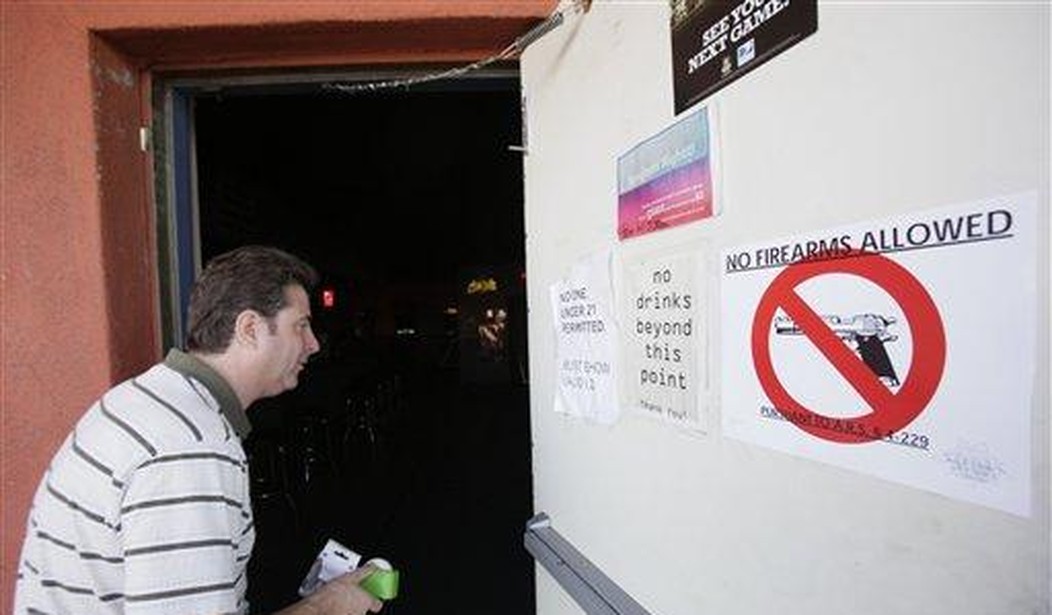While the Democrat-controlled state legislature in Maryland didn’t immediately respond to the Supreme Court’s decision in Bruen, lawmakers are coming after the right to bear arms with a vengeance in the new year. The very first bill filed in the Maryland State Senate this year, ironically titled the “Gun Safety Act of 2023”, would create a number of new “gun-free zones” where firearms are banned; so many, in fact, that the right to carry would exist largely only in theory.
Sen. Jeff Waldstreicher, a Democrat from Montgomery County, is the author of Senate Bill 1, which makes it a misdemeanor for anyone (concealed carry holder or not) to carry a firearm within 100 feet of a “place of public accommodation”; a phrase so broadly defined that it would be virtually impossible for those with a concealed carry license to carry in almost every community in the state.
(1) an inn, hotel, motel, or other establishment that provides lodging to transient guests; (2) a restaurant, cafeteria, lunchroom, lunch counter, soda fountain, or other facility principally engaged in selling food or alcoholic beverages for consumption on or off the premises, including a facility located on the premises of a retail establishment or gasoline station; (3) a motion picture house, theater, concert hall, sports arena, stadium, or other place of exhibition or entertainment; 4) a retail establishment that: (i) is operated by a public or private entity; and (ii) offers goods, services, entertainment, recreation, or transportation; or (5) an establishment: (i) 1. that is physically located within the premises of any other establishment covered by this subtitle; or 2. within the premises of which any other establishment covered by this subtitle is physically located; and (ii) that holds itself out as serving patrons of the covered establishment.
Entering the no-go zone around any “place of public accommodation” while legally armed would be a misdemeanor crime punishable by up to one year in prison, though the bill does carve out an exception for individuals carrying on a public right-of-way. You couldn’t get arrested for driving by a gas station/convenience store with your concealed firearm on your person under Waldstreicher’s bill, but you also wouldn’t be able to stop and fill up as long as you had your firearm with you.
The bill forbids not only the wearing and carrying of firearms within 100 feet of any of these “gun-free zones,” but prohibits transporting firearms as well, so even parking your car, unholstering your pistol and locking it your vehicle in the parking lot of a retail establishment would likely be a misdemeanor offense under the current terms of SB 1.
In Bruen, the Supreme Court warned the state of New York against defining “sensitive places” so broadly that the entire island of Manhattan became a gun-free zone. New York has disregarded that guidance, and unfortunately the Supreme Court seems to want the Second Circuit to deal with the problem rather than intervening immediately, but the Bruen guidance still stands, and now Maryland could soon follow New York and New Jersey in making it a crime to exercise your right to bear arms in the vast majority of publicly-accessible places.
With a Democratic supermajority in the legislature and a far-left governor now at the helm, SB 1 stands a good chance of becoming a very bad law this year, and it’s far from the only anti-2A measure that we’ll be seeing in Annapolis. In fact, Waldstreicher has also introduced SB 0118, which bans concealed carry on all private property by default; requiring property owners to post a sign permitting concealed carry on the premises, and subjecting those who carry onto non-posted property to up to two years in prison if they’re convicted.
Now that the Supreme Court has said states like Maryland don’t have the prevent most citizens from exercising their right to carry based on subjective determinations of need, anti-gun activists and politicians have shifted to blocking where concealed carry holders can be armed. It’s no coincidence that pre-Bruen the laws of “may issue” states like Maryland, New York, and New Jersey contained very few “sensitive places”. Only when the average citizen became eligible to exercise their fundamental right to armed self-defense did these states suddenly decide that they didn’t have nearly enough “gun-free zones” on the books. The Supreme Court may not be moving as quickly as most of us would like in terms of responding to these post-Bruen assaults on our right to bear arms, but bills like SB 1 and SB 0118 are going to give them plenty of additional chances to weigh in and smack down these egregious infringements in the months ahead.









Join the conversation as a VIP Member